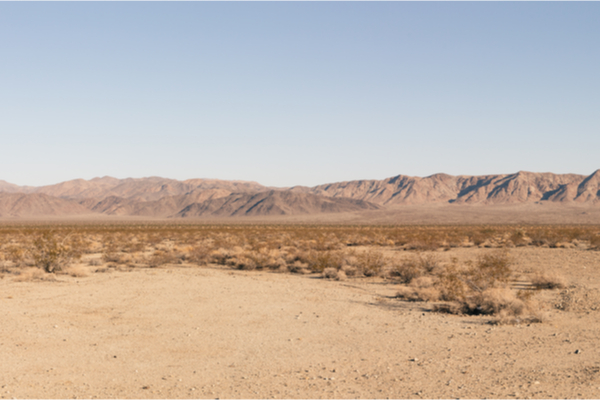A study published in Nature Climate Change in February found the period from 2000 to 2021 was the driest for the Southwestern United States region in 1,200 years. Last year’s drought severity was “exceptional,” researchers said, and all indications are the extreme conditions will continue through 2022. The human-caused climate crisis has made the megadrought 72% worse, the study noted.
Burning fossil fuels is having a direct impact on water availability in the West, which for the past two decades has been characterized by dry weather, with hopeful but fleeting bursts of precipitation. You don’t have to look further than Los Angeles in December for an example. With nearly 10 inches of rain, it was the second-wettest such month on record for the city, according to the National Oceanic and Atmospheric Administration (NOAA)
But the dreams of drought remediation were dashed when it became clear the jet stream did not have more lined up in the new year.
In January of 2022, less than a tenth of an inch of rain fell in Los Angeles, making it the eighth-driest January on record for the city. Halfway through February, things only got worse. This year is off to a record-dry start.
Fluctuations like these are becoming more pronounced due to climate change. “There’s good documentation that, in fact, there is less rainfall. What seems to be happening according to most of the climate scientists is we’re getting longer, drier periods,” said David Feldman, professor of urban planning and public policy at University of California at Irvine, and director of Water UCI. “But the irony is those longer, drier periods are punctuated by very intense storm events.”
Park Williams, a climate scientist at UCLA and the study’s lead author, said it will take several years of above-average rain and snowfall to cut through the megadrought. “It’s extremely unlikely that this drought can be ended in one wet year,” he said.
—
Photo Credit: RoSy76 / Shutterstock.com
Photo Credit: RoSy76 / Shutterstock.com
